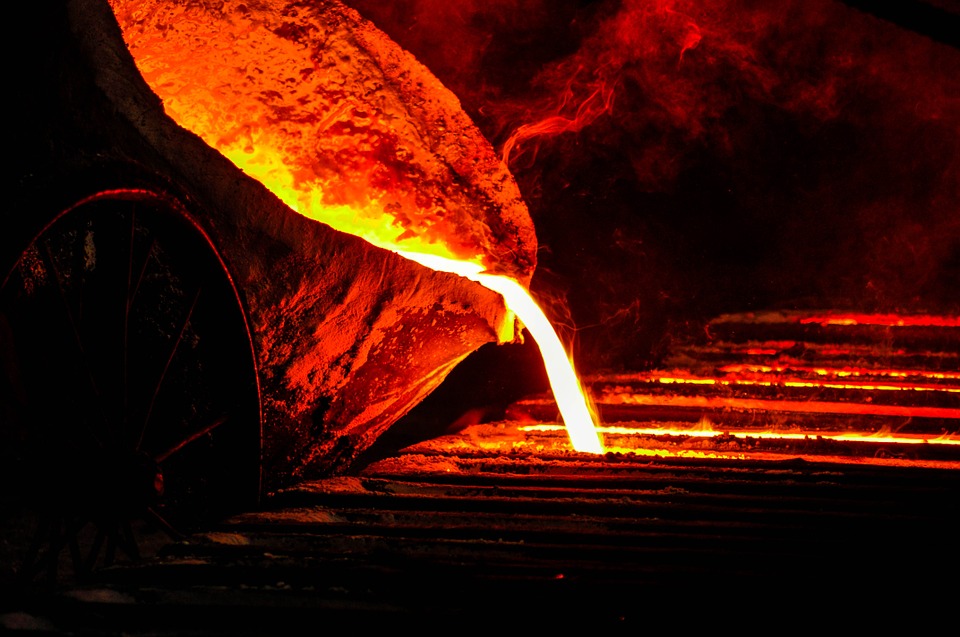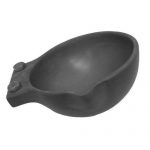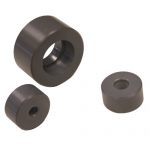Silicon nitride ceramics are a unique family of materials engineered for optimal efficiency in extremely demanding thermodynamic conditions. Several derivatives of the original beta-phase silicon nitride Syalon 101 have been designed for enhanced corrosion resistance or improved formability, but these outstanding mechanical and thermal properties still underline the performance of the overarching product line.
Alongside significantly reduced susceptibility to thermomechanical stress and enhanced resistance to thermal shock, silicon nitride displays an array of superior thermal properties that explain their suitability for demanding industrial applications. This blog post will highlight the thermal conductivity of silicon nitride ceramics in more detail.

What is Thermal Conductivity?
Thermal conductivity is a measure of how heat propagates through a material. This thermal property is primarily determined by the mineralogical composition, density, and porosity of the material.
Thermal conductivity is a temperature-dependent thermal property, representing a correlative relationship between rising temperatures and faster rates of heat transference. This is due to increasingly energetic motion from heated molecules within the sample, which enhances the conduction of heated air inside the material’s porous structure. The direction of a heat current may also be a critical factor for determining thermal conductivity. Isotropic materials conduct heat independently of their spatial orientation, resulting in high thermal conductivity values irrespective of a thermal vector. Anisotropic materials by contrast display varying thermal properties depending on the heat’s directional flow.
Each of these thermal properties is considered under Fourier’s law, which denotes an empirical relationship between the temperature gradient in the direction of heat flow and a material’s thermal conduction rate. This, in turn, can be used to determine a material’s heat transfer coefficient in Watts per meter-Kelvin W/(mK).
- To learn more about the thermal properties of silicon nitride, read our previous article The Thermal Shock Resistances of Sialon Ceramics
Importance of Thermal Conductivity
Thermal conductivity determines the heat flux able to pass through a material depending on the temperature gradient across the component. The heat transfer coefficient is critical for characterising the applicability of engineered materials for use in industrial sectors with extreme temperature requirements. Alloys with high mechanical and thermal properties may be unsuitable for use in metallurgical applications, for example, if their thermal conductivity exceeds a pre-defined value. This is due to inefficiency via high-energy loss through heat transference.
Silicon Nitride and Thermal Conductivity
Silicon nitride usually offers comparatively low thermal conductivity compared to silicon carbide or aluminium nitride owing to its unique chemical composition and crystal structure. These fine ceramic grains typically grow faster in a lengthwise plane, resulting in an interlocking needle-like structure that exhibits anisotropic thermal properties. This represents significantly reduced thermal conductivity in severe temperatures. The thermal properties of silicon nitride are also unique due to the material’s high density composition, which displays a reduced magnitude of change at elevated temperatures.
The thermal conductivity of each silicon nitride grade available from International Syalons is as follows:
- Syalon 101: thermal conductivity of 28 W/(mK).
- Syalon 110: thermal conductivity of 27.0 W/(mK).
- Syalon 050: thermal conductivity of 20 W/(mK).
- Syalon 501: thermal conductivity of 19 W/(mK).
Silicon Nitride Products from International Syalons
International Syalons is the world-leading supplier of silicon nitride ceramics for industrial applications. We offer a range of technical ceramic materials optimised for distinct mechanical and thermal properties, and engineering techniques.
- Read about how the low thermal conductivity of silicon nitride products enables them to excel in high-temperature environments: The Benefits of Sialon Thermocouple Protection Sheaths
If you need any more information, simply contact us directly.



